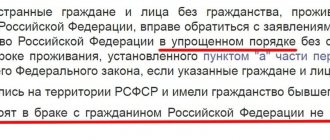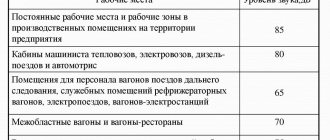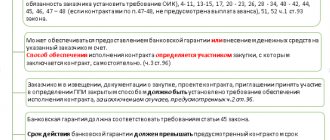Last updated March 2021
Conflict situations are by no means uncommon in society today. When they are resolved, both honest methods and all kinds of lies are used, denigrating the opinions of others about a person or organization. They try to convey this information as reliable and truthful to as wide a circle of people as possible; often such behavior is also a way of unfair competition. Now such behavior is punishable under Art. 128.1 of the Criminal Code of the Russian Federation and is called slander.
Slander and insult
Most people confuse slander and insults. Indeed, the degree of negative impact on the internal state of the person who had to face them is approximately the same. The history of the rules of law establishing responsibility for them is also similar. That's why there is some confusion. However, the difference for law enforcement practice is very significant.
Some time ago, the Criminal Code of the Russian Federation had 2 articles - 129 “Slander” and 130 “Insult”. Federal Law No. 420-FZ of December 7, 2011, these norms were abolished and decriminalized, that is, these acts ceased to be crimes.
The same act amended the Code of Administrative Offences, introducing 2 new articles – 5.60 “Slander” and 5.61 “Insult”.
Consequently, what was previously considered a crime has become an administrative offense with corresponding changes in the procedure for prosecution and consequences.
However, following international trends, the legislator again changed the situation by abolishing Art. 5.60 of the Code of Administrative Offenses of the Russian Federation, again establishing criminal liability for libel, introducing a new norm into the Criminal Code with the number 128.1. This happened with the adoption of Federal Law No. 141 of July 28, 2012 - FZ.
From that time on, libel again became a criminal offense. But insulting citizens remains an administrative offense.
Insulting certain persons while performing official duties is still punishable under the Criminal Code.
Based on legal norms, let's consider the concepts:
- Insult – humiliation of the honor and dignity of another person in an indecent form. It can be with obscene language, which gives a negative assessment of the opponent’s personality. At the same time, publicity and the presence of witnesses to statements are important for the qualified offense that establishes more stringent liability.
- Slander is the disclosure of untrue information about an opponent, slander that discredits his honor and dignity, or damages his reputation. It does not matter in what form the slander is expressed, the main thing is that this information does not correspond to reality, which its distributor knew, was defamatory and must be disseminated, that is, communicated to at least one person.
Composition of slander
The article in question prohibits illegal actions that infringe on such non-property benefits as honor, dignity, and reputation.
Only an individual can become a victim of slander . The law allows for the protection of the rights of even a deceased person.
Legal entities protect their non-property rights only in civil proceedings. A person who slandered a legal entity under Art. 128.1 of the Criminal Code of the Russian Federation will not be involved.
Slander is expressed in the dissemination by the perpetrator of knowingly false information discrediting the victim. Let's look at these concepts in detail:
- Knowledge means that the perpetrator reliably knew that the information he disclosed was not true.
- False means that information does not correspond to reality. At the same time, the facts set out in official documents, for which there is a procedure for appealing in case of disagreement with them, are not recognized as untrue. Such documents include, for example, a verdict, a court decision, an investigator’s resolution, various personnel orders and other official documents.
- Dissemination is the communication of this information in any way - in publications, broadcasts in the media, the Internet on radio, television, in characteristics, speeches, orally, in writing, after which at least one person became aware of it.
- Defamatory statements can be statements about violation of the law, dishonest, vile act, dishonest behavior, violation of established customs and other facts that poorly characterize a person, belittle his assessment in society, and have a bad impact on his reputation. The reliability of these statements can be verified.
Information discrediting a person does not include evaluative statements or beliefs expressing the opinion of a specific person. It is impossible to check them.
You will have to be held accountable for libel from the age of 16 .
The analyzed criminal act assumes exclusively direct intent . The offender understands that he is disclosing information discrediting the victim that is not related to reality, is aware of the possible negative consequences for him and wants them to occur.
If the person who disseminated information defamatory to the victim was in good faith mistaken that it was true, he is not liable for libel in accordance with the Criminal Code.
Slander is considered completed from the moment the information is disseminated.
Defamation of an inquirer, investigator, prosecutor, judge, juror, bailiff is prohibited and punishable by a separate provision of the Criminal Code - 298.1.
Everyone is guaranteed the right to contact government authorities with reports of violations or crimes that they believe have occurred. These bodies are obliged to conduct checks on the facts indicated in the appeals and make appropriate decisions on them. The mere fact that these facts were not confirmed by the results of the checks cannot be regarded as slander.
We can talk about slander here if the applicant abused his right. That is, he knew about the absence of violations or crimes, and the purpose of the appeal was to harm the one about whom it was reported.
Types of slander
The degree of punishment to which the guilty person will be subjected depends on the type of violation. Current legislation determines that libel can be presented in the form of:
- the usual dissemination of deliberately incorrect information about a third party, which discredited his honor or led to damage to his reputation;
- providing such information during a public speech, demonstration of a work or in the media;
- dissemination of false data using official authority;
- publishing false information about a person having a disease that could cause harm to others;
- falsely accusing a person of crimes of a sexual nature;
- dissemination of false information that a person has committed a serious or especially serious crime.
Read also: Road Safety Law
Regardless of the type of violation, in order to bring a person to justice it is necessary to collect all the evidence of his involvement in this type of offense.
If during the proceedings it is revealed that the person believed in the veracity of the materials he published, the charges may be dropped.
What can slander result in?
Art. 128.1 of the Criminal Code of the Russian Federation consists of 5 parts. They establish penalties for libel depending on the form and content, which affect the amount of punishment, as they increase the danger of the act to society.
Part 1 of the article defines punishment for simple libel. It may entail:
- fine up to half a million rubles. or in the amount of income that the convicted person will receive for a period of up to six months;
- compulsory work up to 160 hours.
Part 2 defines liability for libel in public speech, the media, or any work that is shown publicly. Such an offense is punishable:
- a fine of up to 1 million rubles. or in the amount of income for a period of up to a year;
- compulsory work up to 240 hours.
Under Part 3 , you will have to answer for slander using your official position. For it you can get:
- fine up to 2 million rubles. or in the amount of income for a period of up to 2 years;
- compulsory work up to 320 hours.
Part 4 punishes for slander about the victim’s illness, which poses a threat to others, as well as for slander accusing of a crime of a sexual nature. This will be followed by options:
- fine up to 3 million rubles. or in the amount of income for a period of up to 3 years;
- compulsory work up to 400 hours.
Under Part 5 , you will have to answer for libel with accusations of a serious, especially serious crime. For such an act the perpetrator may be subject to:
- fine up to 5 million rubles. or in the amount of his income for a period of up to 3 years;
- compulsory work up to 480 hours.
Libel: article and punishment in 2021
According to the comments to the article of the Criminal Code of the Russian Federation of 2021, libel is understood as the dissemination of knowingly false information that humiliates a citizen and discredits his reputation. In order to be able to classify the defendant’s act as slander, it is important to prove that the information he provided about the plaintiff was obviously false and caused significant damage to the citizen’s reputation.
Current version of Art. 128.1 of the Criminal Code of the Russian Federation contains five parts, which provide for different forms and methods of disseminating slander. For each subsequent variety, the punishment becomes more severe.
For example, according to comments and judicial practice, article of the Criminal Code of the Russian Federation 2021 for libel
, prescribes stricter liability for disseminating information about the presence of a dangerous disease about the plaintiff, rather than accusing him of simply disseminating false information.
Another legislative provision that regulates issues related to the dissemination of false information is Article 5.60 of the Code of Administrative Offenses on libel.
. Under this provision, administrative penalties may be applied:
- for citizens – 1-2 thousand rubles;
- for officials – 10-20 thousand rubles;
- for legal entities – 100 -200 thousand rubles.
If slander is associated with a more serious act, then the penalties are increased:
- for citizens – 3-5 thousand rubles;
- for officials – 30-50 thousand rubles;
- for legal entities – 300 -500 thousand rubles.
Consideration of this issue, using the article of the Code of Administrative Offenses of the Russian Federation on libel, does not occur very often, since insinuations have now been returned to the section of criminal penalties and, accordingly, are regulated by the criminal code.
Simple slander is the dissemination of false information about a citizen, but without aggravating consequences. For such an act, a fine of 500 thousand rubles or compulsory work of up to 160 hours is provided. Here is an example of such a decision from their judicial practice:
In 2014, a resident of the Saratov region published a message in the media that her husband was a fraudster and hiring him was extremely dangerous. As a result, the citizen was prosecuted for libel under Part 1 of Art. 128.1 of the Criminal Code of the Russian Federation, for spreading slander. The judge imposed a fine of 500 thousand rubles and compensation for material damage to the husband of the guilty citizen for the period of his forced unemployment.
According to Part 2 of Art. 128.1 of the Criminal Code of the Russian Federation, slander can have serious consequences and more serious punishment. Let us give an example from judicial practice.
Citizen Ch. from the Leningrad region posted nude photographs of his ex-girlfriend on the Odnoklassniki website, supplementing them with obscene expressions and a message about the presence of a sexually transmitted disease. The injured girl went to court, where a decision was made on a fine of 3 million rubles and compensation for moral damage.
Guided by Art. 5.60 of the Code of Administrative Offenses of the Russian Federation, punishment may also be administrative in nature. As an example, here is a case from judicial practice:
The head of the real estate office informed the client that the seller of the apartment was unscrupulous in terms of conducting legal transactions. The injured citizen went to court and won the case. A fine of 10 thousand rubles was imposed on the manager.
Articles 129 and 130 of the Criminal Code of the Russian Federation, which established liability for libel and slander, have lost force. Instead, there is one article of the Criminal Code - 128.1.
Slander is understood as the dissemination of deliberately false information that can negatively affect the reputation of a citizen and discredit his honor and dignity.
The article of the Criminal Code of the Russian Federation for slander includes a list of aggravating circumstances for which a more severe punishment is imposed:
- publication of untrue information in the media or public speech;
- use of official position;
- dissemination of information that a person suffers from a dangerous disease;
- charge of a crime of a sexual nature;
- charge of a grave or particularly grave violation of the law.
Under the article for libel and insult to personality, you can receive one of the following sanctions:
- fine up to 500 thousand rubles;
- compulsory work up to 160 hours.
Public insult in the form of slander is punishable by a fine of up to 1 million rubles. or compulsory work up to 240 hours.
The article for libel and slander also establishes punishment for using one’s official position to disseminate false information. The fine can increase to 2 million rubles, and the period of work can be up to 320 hours.
If we are talking about accusations of having a dangerous disease or committing a crime against sexual freedom, the slanderer can receive a fine of up to 3 million rubles. or work up to 400 hours.
Also, a criminal can accuse a citizen of committing a serious or especially serious crime. In this case, liability for libel is provided for in Part 5 of Art. 128.1 of the Criminal Code of the Russian Federation. The fine may amount to 5 million rubles, and the period of compulsory work may be up to 480 hours.
How to hold offenders accountable?
Sometimes it is difficult to figure out what to do when suddenly a person becomes a victim of some illegal act. It is important to determine for yourself what purpose is pursued by contacting law enforcement agencies or the court.
It is necessary to understand that criminal liability is no joke. The fact that the slanderer deserves it must be proven, and this, of course, will require a lot of time and effort.
In the case of libel, there are several options for where and with what kind of complaint to file. These options depend on the part of the article and some other conditions.
Read more: How to correctly write a statement of libel
Criminal cases under Part 1 of Art. 128.1 of the Criminal Code of the Russian Federation – private prosecution cases
This means that for “simple” slander without aggravating features under Part 1 of Article 128.1, criminal prosecution against the offender is carried out only upon a statement from the victim.
Such cases are initiated by magistrates at the request of the victim against a specific person. Detailed requirements for such treatment are given in Art. 318 Code of Criminal Procedure of the Russian Federation.
That is, if usually in criminal cases the burden of collecting evidence is assumed by law enforcement agencies, and the prosecutor in the case is the prosecutor, then in cases of private prosecution, law enforcement officers and the prosecutor do not take part in the criminal prosecution. In such situations, the applicant acts as the prosecutor. He will also present evidence of slander.
However, the law specifies exceptions to these rules , when law enforcement officers have an obligation to conduct an inspection, if there is evidence of a crime, to initiate and investigate a criminal case for libel in this regard, and in such situations, the prosecutor acts as the public prosecutor in court.
These exceptions include when the libel is committed:
- In relation to those who cannot defend themselves due to a dependent, helpless state.
- By an unknown person.
In other words, in such situations, in practice the most common is when libel is committed by an unknown person, a statement must be submitted to the police , since in cases of libel, an inquiry is carried out in its departments.
If, during an inspection, investigation or consideration of such a criminal case in court, the victim reconciles with the offender, renounces the charges, and does not want to bring him to justice, the criminal case is not initiated, and the one already initiated is terminated. This only happens before the court retires to pronounce judgment.
Cases of offenses under parts 2-5 of Article 128.1 of the Criminal Code of the Russian Federation - cases of public prosecution
They are initiated and criminally prosecuted by law enforcement agencies, regardless of the wishes and statements of the victim. To stop such a case if the victim has reconciled with the offender and does not want him to be punished is the right of the investigator or the court, but not his responsibility.
A statement of aggravated defamation listed in the above-mentioned parts of the article must be addressed only to the police.
There are no specific requirements for reporting a crime . It is written in free form and addressed to the head of the police department to which the applicant is applying.
Based on the application, a pre-investigation check will be carried out, after which:
- there should be a refusal to initiate a case if there is no corpus delicti;
- a case is initiated when the elements of slander are evident.
The proceedings in the case are completed by drawing up an indictment and sending it to court for consideration.
How to sue for libel
To bring someone to justice, it is enough to file a complaint with one of the authorities, including the court. There are several points that regulate this procedure. First of all, you will need to make a correct and complete application, as well as have strong evidence on hand. Otherwise, the case will be immediately closed or not initiated due to lack of grounds.
Where to contact
To bring a person who knowingly disseminated false information causing harm to justice, it is recommended to file a corresponding complaint with the police.
After the initiation of a criminal case, a trial begins, following which all materials are submitted to the court. At the same time as contacting the police, you can file a claim for libel in the magistrate's court. In this case, all evidence of the person’s guilt must be attached to the claim. Otherwise, the claim will be rejected.
Important! The statute of limitations for claims for such violations is 2 years. If this deadline was missed, then it will be impossible to bring the guilty person to justice.
How to prove libel
Current legislation establishes that not all types of incorrect content qualify as libel. To hold a person accountable, two requirements must be met simultaneously:
- false information was made public, for example, disseminated in the media;
- the data harmed the dignity, honor and reputation of a person.
Any person over the age of 16 who provided incorrect information may be charged. To find a person guilty, it is necessary to prove that:
- the accused knew in advance that the information he had was false. If the data was obtained from third parties or is a person’s personal assumptions, then no punishment will follow;
- the citizen assumed (knew) that the publication of information with incorrect content would harm the person’s reputation or economic status;
- the actions of the perpetrator resulted in negative consequences for the victim.
Qualifying a violation as a crime is only possible if false data was disseminated among many people, for example, by:
- oral transmission of data;
- speaking at official events;
- Media, including the Internet, television, radio, newspapers and other printed publications;
- assigning false negative characteristics to a person.
Important! False information can be expressed both in the presence of a person and in his ignorance. This fact will not influence the court's decisions.
Collection of evidence
The collection of evidence must be taken with special responsibility, since without confirmation of the fact of a violation it will be impossible to bring a person to criminal responsibility.
The evidence base can be built on the basis of:
- video and audio materials;
- screenshots of correspondence on social networks;
- correspondence via SMS messages;
- paper media containing false information published by the accused;
- testimony of witnesses.
It is most difficult to prove a person’s guilt if false data was published online, since identifying the original sender is not always possible.
Drawing up an application
When drawing up an application, you need to be extremely careful, since if there are errors, inaccuracies, typos, omissions or unreliable data, it may not be accepted. In this connection, you will need to fill out the application again, which will lead to a lot of time.
Read also:How to withdraw money from a brokerage account
It is also worth considering that the type of application may differ depending on the authority to which it will be submitted.
Reporting libel to the police
The injured person can file a police report to punish the culprit.
To do this, you will need to personally contact the nearest territorial office. The application is drawn up under the supervision of a police officer, which reduces the risk of filling out the document incorrectly. So it should contain information about:
- the locality of the police department and the full name of its head, in whose name the application is being submitted;
- Full name, registration and residence address, contact phone number, passport details of the applicant;
- fact of violation. The paragraph must contain precise information about the date and method of dissemination of false data. You will also need to indicate what data was published and what consequences it led to. It is allowed to indicate personal experiences experienced due to the violation committed by the culprit. If the victim knows information about the person disseminating false information, then this must also be indicated;
- a request to conduct an investigation into this application and initiate a criminal case.
At the end of the document, the date of application and the signature of the applicant must be indicated.
Important! Police officers must warn a person in writing about possible punishment for false denunciation. This information may already be included in the text.
Libel claim in court
Filing a claim can be carried out simultaneously with contacting the police. This document must contain information about:
- name of the court;
- applicant (full name, passport details, residential address and registration);
- the guilty person (defendant) or group of persons;
- the exact place, time and circumstances under which the offense was committed;
- containing deliberately false information;
- the method of transferring data from the defendant to third parties;
- evidence;
- a request to bring a person to justice with reference to the relevant articles of the Criminal Code of Russia.
The text may also contain a request for compensation for moral damage. To do this, you will need to attach medical certificates to the claim, which will prove the deterioration of your health due to emotional stress.
When filing a claim, in addition to the evidence base, you will need to attach a receipt for payment of the state fee. The claim is considered within 30 days.
Statement of slander to the prosecutor's office
The injured citizen can file an application with the prosecutor's office. Often its employees act as prosecutors during court hearings. The document itself must provide information about:
- the name of the prosecutor's office, as well as the full name and class rank of the prosecutor in whose name the application is being submitted;
- Full name, registration and residence address, contact telephone number of the applicant;
- date and source from which the information was obtained. If you have information about the accused, you must indicate it. This paragraph should also indicate exactly what false data was provided and what they led to;
- availability of evidence confirming the fact of distribution;
- infliction of moral or physical suffering, confirmed by medical documents, by publishing unconfirmed data;
- request to bring the perpetrator to justice.
Read also: Tuition tax refund
At the end of the document there must be the date of its preparation and the signature of the applicant.
Important! When submitting a document to the prosecutor's office, it is worth considering that the statute of limitations is 2 years from the date of commission of the offense. After its expiration, acceptance will be refused.
Other methods of protection
Criminal and civil methods of defending one’s honor and dignity are not mutually exclusive. To be prosecuted for slander under the Criminal Code, the offender must have intent to commit it, and in civil proceedings the likelihood of liability for damage caused to honor, dignity and business reputation does not depend on the guilt of the information disseminator.
Consequently, the refusal to initiate a libel case, the termination of the case for any reason, or any verdict is not an obstacle to filing a claim in court in accordance with the provisions of Art. 152 of the Civil Code of the Russian Federation . The plaintiff - an individual may demand to refute the information, compensate for losses and moral damage.
Did the article help you?
Not really











